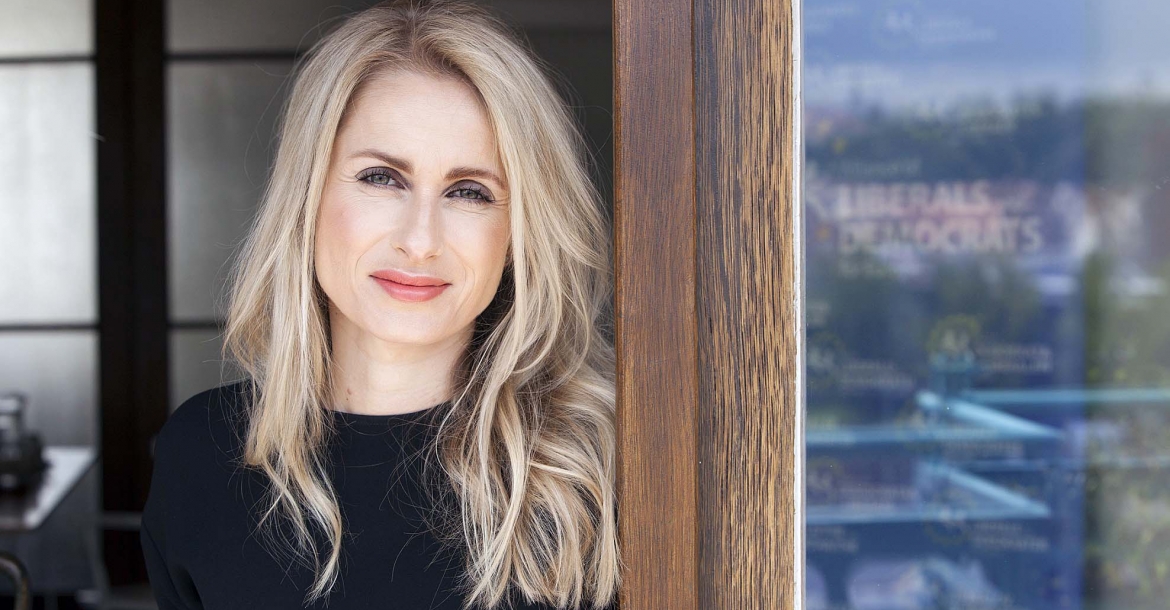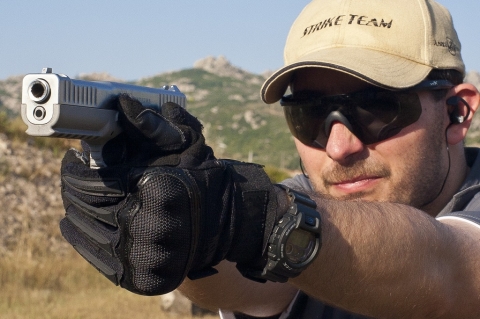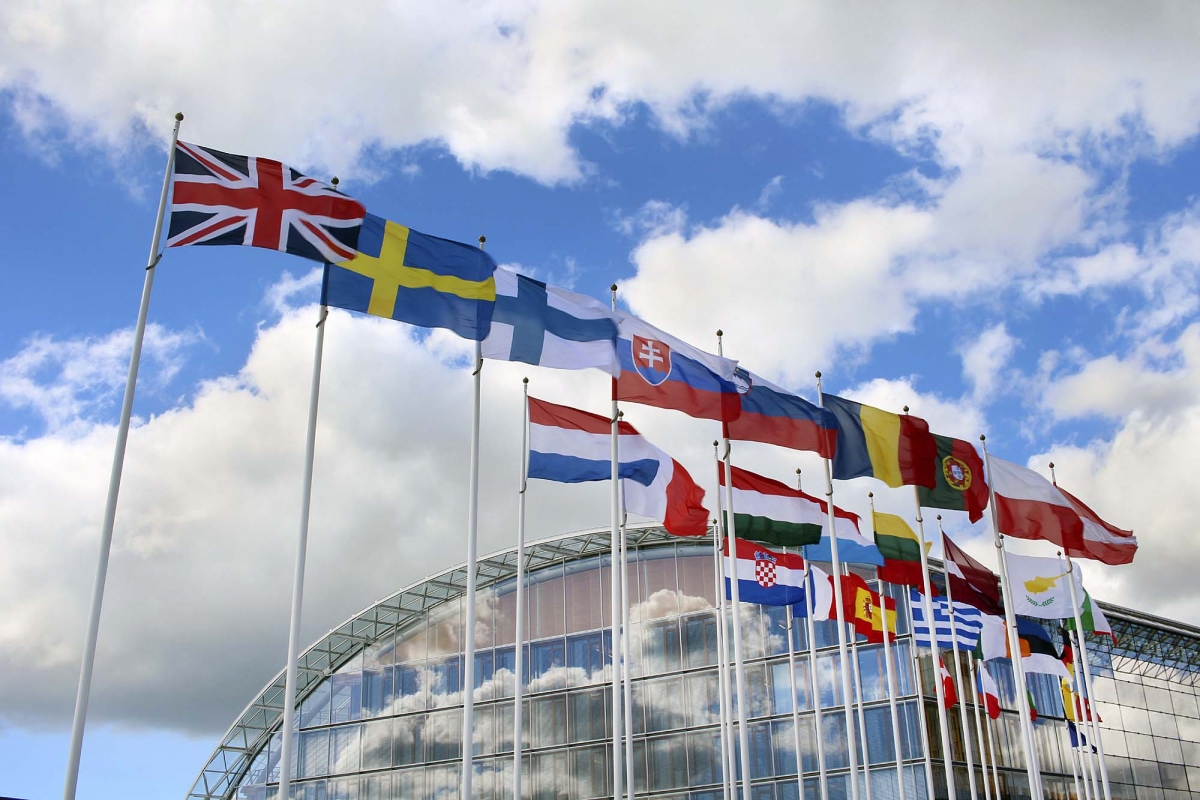EU Gun Ban: Dita Charanzová speaks out to Firearms United
The Firearms United network – one of the main voices of oppositions to the EU Gun Ban representing gun owners from all around Europe – interviewed Czech MEP Dita Charanzová, shadow rapporteur for ALDE and herself one of the staunchest opponents to the European Commission's restrictive proposals

The Firearms United network interviewed Czech MEP and ALDE shadow rapporteur Dita Charanzová
The Firearms United network is working around the clock to defend gun owners Europe-wide from the restrictive provisions of the amendment draft for the European firearms directive that was approved at the IMCO committee back in January. Those restrictive provisions were indeed pretty much watered-down if compared with the original requests of the European Commission, but are nonetheless incredibly punitive towards European gun owners.
As Firearms United gears up for the plenary vote at the European Parliament (scheduled to take place in March), Czech MEP Dita Charanzová decided to speak out concerning the proceedings and negotiations regarding this proposal.
Dita Charanzová is the shadow rapporteur for the dossier for the Group of the Alliance of Liberals and Democrats for Europe, and is herself one of the staunchest opponents of the restrictions proposed by the European Commission. In her interview, she provided Firearms United with her views regarding the (very little) lights and (much, much many more!) shades that marked the proceedings in the past months.

Dita Charanzová is a firm opponent of the EU Gun Ban proposals
Mrs. Charanzová, how did you live the entire process as a Shadow Rapporteur?
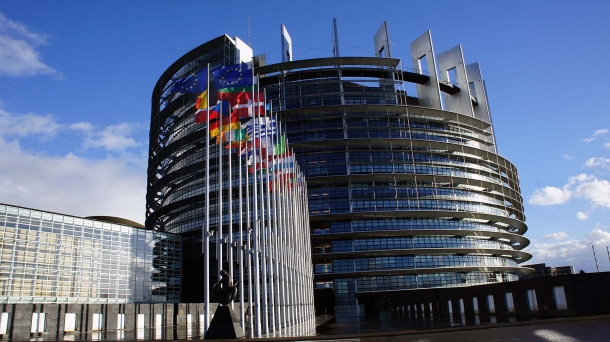
Not much of the proceeding concerning the amendment of the European Firearms Directive could be called "Standard procedure"
I must say that in my whole presence and work in Brussels – first as an official for Permanent Representation of the Czech Republic, and later as MEP – I never met a proposal that would be this much politicised, especially as the end of negotiations closed in; and I found that very disappointing.
The Commission exerted enormous amounts of pressure to adopt a text that would contain as severe restrictions as possible, and to adopt it as soon as possible, without being able to give any real reason for these restrictions.
For example, one of basic requirements of proper legislative process is preparation of the impact assessment – an evaluation of the current situation and expert estimation about impact of proposed changes, their expected benefits and costs.
The Commission failed to present it, they only referred to certain earlier studies; however, these studies were dealing only with few partial issues. However, an impact assessment study is a key guideline for MEPs when making decisions; that's why I requested it several times from Commission, even during public IMCO sessions.
Another such an issue is an approach to public.
"Before introducing of the proposal, the Commission issued two public consultations, but the proposal reflected nothing from more than 28 000 answers. Then, why were these consultations issued?"
That's a good question – for the Commission. I asked them myself about that during public proceedings; however, it went away without any response.
What is actually the role of the European Commission in the legislative process?
According to Dita Charanzová, the European Commission went to great lengths to obtain the passage of the highest possible number of restrictions
The Commission has the right of initiative. That means that it can make legislative proposal, but cannot approve it. In practice, the Commission prepares the legislative proposal and together with expert technical materials – like impact assessment study – presents the proposal to the Council and Parliament.
These two bodies have right to decide and either approve or reject the legislation. In these proceedings, the Commission provides technical information and opinions of experts at request of the Council or Parliament. If the Commission has a reason to, it can even withdraw the proposal.
However, everything was opposite with this directive amendment proposal.
We repeatedly asked for impact assessment study that would reveal how many people and firearms would be affected by these restrictions, and how much crime and terror attacks are committed with these firearms. No answer.
When we pressed it, instead of producing an impact assessment study, the Commission presented those questions to Member States in form of a questionnaire and presented us with its results. And the results were that the number of affected people would result at least in the hundreds of thousands.
Those proceedings were really non-standard. Representatives of the Commission brought certain last-minute changes to negotiations which they weren't able to justify – they were not prepared at all. At one instance, they even tried to answer my objection with a definition taken from Wikipedia. Fortunately, that was too much not just for me, and this argument was rejected.
In your opinion, why is the Commission doing this? What is the political background of this situation?
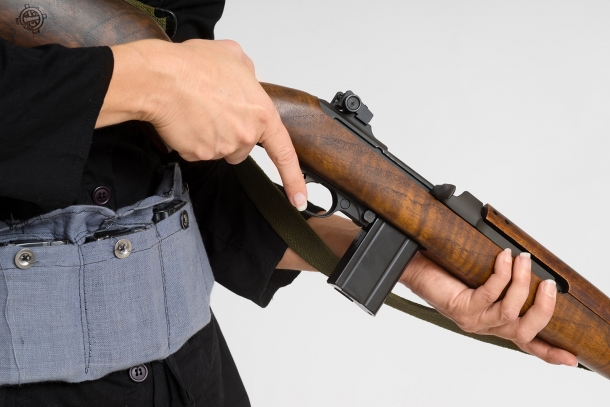
The European Commission and the member States are incapable to address the rising insecurity of the European Union: could this be one of the desperate motives behind the EU Gun Ban?
I don't want to spin any conspiracy theory here. However, one of reasons for this eminent interest of the Commission is that, right now, this is the only proposal that claims to address the worsening of the common security situation in the European Union. Whether it is effective or not, they don't have anything else.
Also, it's no secret that the Commission was strongly pushed into this position by France, which needs something to present to its citizens before presidential elections in April.
Unfortunately, in the end even the Main Rapporteur (Vicky Ford) and colleagues from other groups had to succumb to this pressure. I didn't feel like succumbing to their pressure, though, because first and foremost I represent Czech citizens and their legitimate interests.
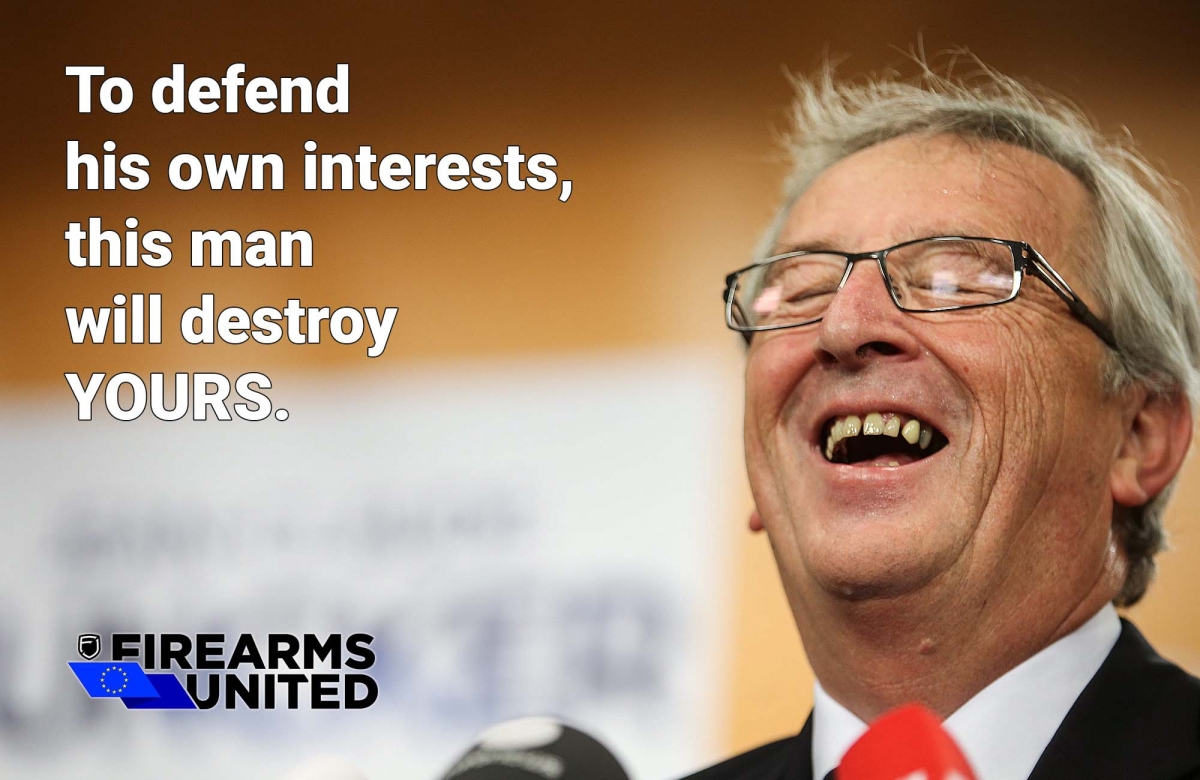
The European Commission is threatening to publicly shame MEPs for "not being willing to do enough to protect Europe from terrorism" should they refuse to pass restrictions against legal ownership of firearms!
Firearms owners from Czech Republic reacted passionately against the proposal
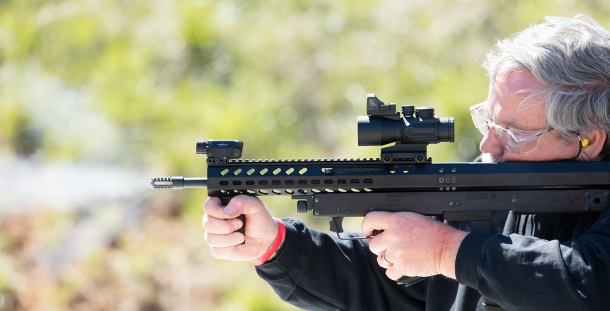
Dita Charanzová and many other MEPs are aware of the sheer amount of damage that the EU Gun Ban would do to the livelyhood of hundreds of thousands of honest European citizens
"Similar reactions came from other European countries including Switzerland. These reactions weren't aimed just at the Directive, but at European Union as whole."
Yes, part of the Parliament does see this risk. Liberal MEPs from our fraction are pointing out that the Commission is turning many European citizens into enemies of the EU for no reason.
However, most MEPs support the proposal, because the Commission issued the statement that if the Parliament refuses to approve their proposal, it shall refuse to protect people from terrorism by doing so.
We are throwing the baby out with the bathwater here. We need a safer Europe, and I am the first who would vote for it. This Directive could be beneficial without infringing on people's liberties – for example, by ensuring that deactivated firearms shall be deactivated properly and irreversibly.
But the Commission's course is just plain wrong. To make the directive functional and useful, we need to prepare it like Czech firearms law was prepared: base it on facts, consider it thoroughly, and don't limit civil liberties more than is absolutely necessary to ensure common safety. That's what I urged through whole legislative process.
What shall be your further moves?
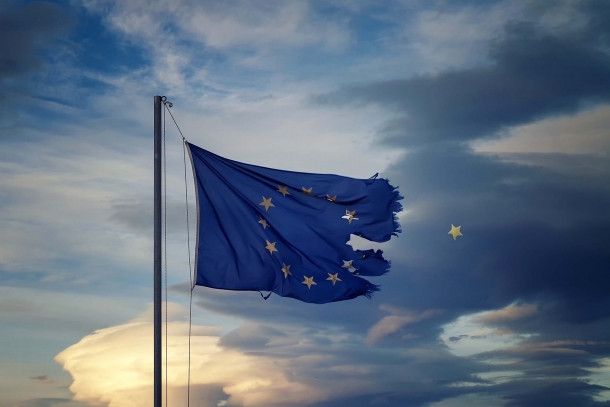
Dita Charanzová's warning is stern: the European Commission is turning Europe's most honest and law-abiding citizens into enemies of the European Union – without a valid reason!
The next phase is the vote at the plenary session of the European Parliament, in March. I shall try to propose certain amendments there. I say “I'll try” because single MEP cannot propose amendments in the plenary session; only groups of 40 MEPs or an entire group can do that. Therefore I shall work to assemble this support.
The Parliament shall then vote on proposed amendments. I will not try to give any forecast on the results, though, since it will likely be influenced by many factors. However, the legislative process is still not finished, so we need to fight on.
Should the battle be lost at the European Parliament, challenging the directive at the European Court of Justice is the next possible step – and I would support such a step.
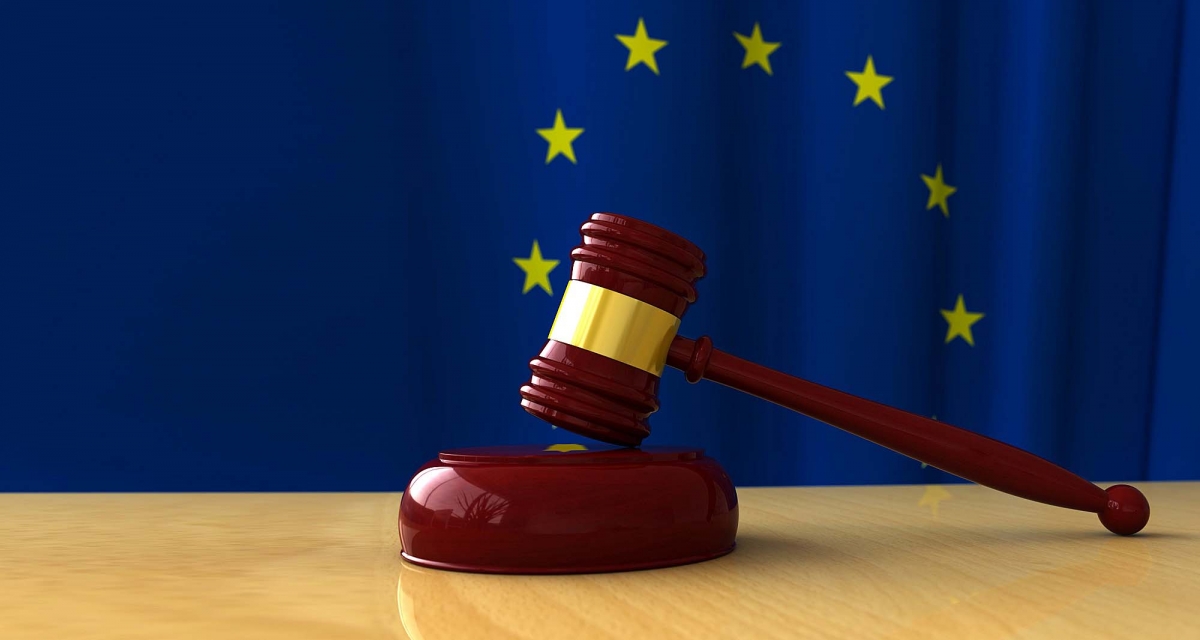
According to Dita Charanzová, an appeal to the European Court of Justice against the directive would be likely if the EP plenary doesn't thrash the remaining restrictions – but will it happen?

